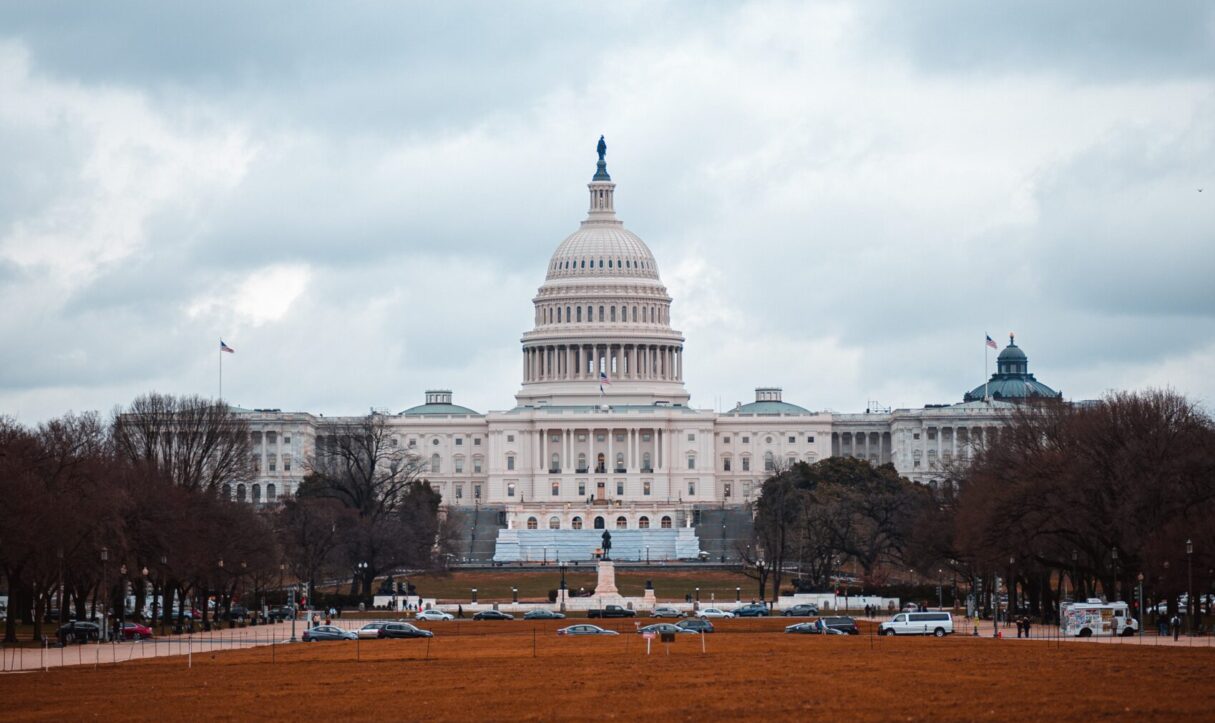Last October marked the 20th anniversary of Congress’s vote to authorize the 2003 Iraq War. Nearly a year later, the bipartisan effort to finally take that war authority off the books has reached a critical juncture.
The Senate made history by overwhelmingly passing legislation to repeal the 2002 Authorization for Use of Military Force Against Iraq (Iraq AUMF) in a bipartisan 66-30 vote in March 2023. Now, Speaker of the House Kevin McCarthy (R-Calif.) must bring the measure to a vote in the House and allow lawmakers to finalize this long overdue, common-sense step toward reclaiming their constitutional war powers and ending endless wars.
While advocates for repealing the 2002 Iraq AUMF were disappointed that the issue wasn’t taken up in the House as part of the annual defense policy bill over the summer, McCarthy assured lawmakers in July that the repeal effort would be “dealt with” in September. But as of right now, it remains unclear exactly how McCarthy plans to fulfill that commitment. The House Foreign Affairs Committee is set to hold a hearing on Thursday, Sept. 28, 2023, on AUMF reform after Reps. Ken Buck (R-Colo.) and Dean Phillips (D-Minn.) were appointed to lead broader war powers negotiations over the summer. While these negotiations present an important opportunity for Congress to examine the last 22 years of forever wars and rein in America’s military engagements, it’s crucial that the legislation to repeal the 2002 Iraq AUMF is decoupled from them.
Repealing this AUMF is an important and historic step in its own right. But as this process plays out, leaders in the House must not risk derailing the promising effort to finally repeal the 2002 Iraq AUMF by needlessly linking it to the broader war powers negotiations.
While this week’s hearing is also expected to address the 2002 Iraq AUMF, the House war powers negotiations have been focused largely on repealing and replacing the broader 2001 AUMF — the legal authorization passed days after the 9/11 attacks, which has been used to underpin America’s expansive post-9/11 counterterrorism military operations around the globe. As lawmakers confront this issue, they must seriously reckon with the costs and legacy of those wars and the failures of the United States’ war-based approach to counterterrorism. Rather than simply updating the 2001 AUMF, Congress should instead pass Rep. Barbara Lee’s (D-Calif.) bill to sunset it after eight months and turn the page on the forever wars once and for all.
Repealing this AUMF is an important and historic step in its own right. Congress owes it to the American people, and particularly to our servicemembers and veterans, to get it done. But as this process plays out, leaders in the House must not risk derailing the promising effort to finally repeal the 2002 Iraq AUMF by needlessly linking it to the broader war powers negotiations.
Now Is Better Than Never
The reasons for repealing the 2002 Iraq AUMF are numerous and clear. More than two decades after the invasion, the AUMF that authorized the Iraq War is not relied upon as the sole source of authority for any military operations. In 2022, then-Biden administration Deputy Secretary of State Wendy Sherman said that the authorization has “outlived its usefulness and should be repealed.” But repealing this authority is not merely a symbolic gesture or matter of legislative housekeeping. Allowing outdated war authorities to remain on the books is dangerous and undermines the crucial role Congress has in deciding when, where, and against whom the United States goes to war.
In 2020, the Trump administration used an expansive, highly dubious interpretation of the 2002 Iraq AUMF as part of its legal justification for the drone assassination of Iranian General Qasem Soleimani and brought the United States terrifyingly close to the brink of war with Iran. It also led to more than 100 servicemembers suffering traumatic brain injuries in a retaliatory attack. For as long as it remains on the books, the 2002 Iraq AUMF remains open to further such dangerous abuses.
In an ever-increasingly polarized climate in Washington, the legislation to repeal the 2002 Iraq AUMF presents a rare opportunity for Congress to demonstrate to the American people that it can still work in a bipartisan way to do its job. This legislation has previously passed in the House four separate times and currently has nearly 70 co-sponsors, including 26 Republicans. It’s also supported by President Joe Biden, leading veterans and military families groups, and a broad array of advocacy organizations across the political spectrum.
Congress made a disastrous mistake by voting to authorize the invasion of Iraq. The 2002 Iraq AUMF sparked a devastating conflict that resulted in the deaths of more than 126,000 Iraqi civilians and continues to impact the Iraqi people to this day. More than 20 years later, lawmakers now must seize the opportunity to repeal it.





















